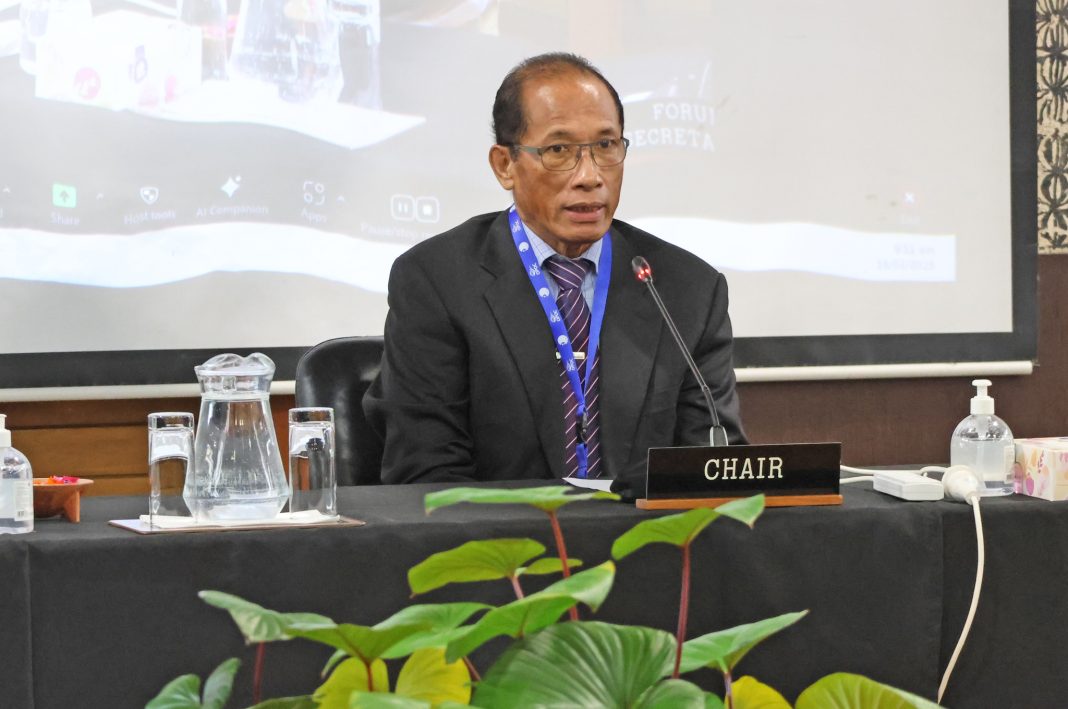Tonga’s Minister of Lands, Survey, Planning, and Natural Resources, Dr ‘Uhilamoelangi Fasi, has called for a responsible and collaborative approach to deep-sea mining (DSM), warning that decisions made today will shape the future of the Pacific.
Speaking at the Deep-Sea Minerals Technical Meeting at the Pacific Islands Forum Secretariat in Suva, Fasi emphasised that the region must balance economic opportunities with environmental stewardship.
“This meeting is a crucial step in our collective efforts to manage deep-sea minerals (DSM) responsibly. As we gather here today, we do so with a clear mandate from our Leaders, who have recognised the importance of regional dialogue on DSM,” he told officials and technical experts.
The meeting brings together Forum Members, CROP agencies, and regional stakeholders to prepare for a High-Level Talanoa on 21 February, where Pacific Leaders will consider the future of DSM governance.
The potential for DSM has divided opinion across the region. While some governments see it as a new economic frontier, others fear long-term damage to marine ecosystems.
Fasi acknowledged these differences but urged Forum Members to engage in open, constructive dialogue.
“We are all aware of the opportunities and challenges that DSM presents. Some see it as a potential driver of economic growth, while others emphasise the need for strong environmental and governance safeguards. This diversity of perspectives is why this Technical Meeting is so important—it provides us with the space to openly discuss these critical issues before presenting them to our Leaders.”
He said discussions must be grounded in the 2050 Strategy for the Blue Pacific Continent, which highlights regional unity, sustainability, and respect for sovereignty.
“Regional Cooperation – We must work together to ensure that decisions made today will benefit future generations.
“Sustainability & Stewardship – The Pacific Ocean is central to our identity, culture, and livelihoods. We must ensure that any decisions on DSM uphold environmental integrity.
“Respect for Sovereignty – Each country has its own policies on DSM, and we must approach this dialogue with respect for national decision-making processes.”
Fasi stressed the importance of talanoa, a traditional Pacific approach to decision-making based on open, inclusive, and respectful discussions.
The Talanoa process is deeply rooted in Pacific culture. It is a space for open, honest, and inclusive dialogue, where we listen to one another and find areas of common understanding.
He urged participants to:
*Engage in meaningful discussions, focusing on solutions rather than differences.
*Be mindful of the bigger picture, ensuring that deliberations contribute to the long-term well-being of the Pacific.
*Support the finalisation of key documents, ensuring that Leaders receive well-informed recommendations.
The meeting is expected to produce briefing materials and policy recommendations for Pacific Leaders, who will decide on the future direction of DSM governance.
“Over the next two days, we aim to:
1. Finalise the agenda and briefing materials for the High-Level Talanoa on 21 February 2025.
2. Ensure that our technical discussions are well-documented, providing a solid foundation for Leaders’ deliberations.
3. Strengthen regional cooperation in the governance of DSM, recognising that our collective actions today will shape the future of our Blue Pacific.
As Tonga assumes a leadership role in these discussions, Fasi reaffirmed his commitment to advancing sustainable and inclusive deep-sea mineral governance.
“As I assume my role as Minister, I look forward to working closely with all of you in advancing a sustainable and inclusive vision for deep-sea mineral governance.”
He called on all stakeholders to work together in the spirit of partnership and accountability.
“Let us approach this meeting with a spirit of collaboration, mutual respect, and commitment to the future of our ocean and people,” said Fasi.














